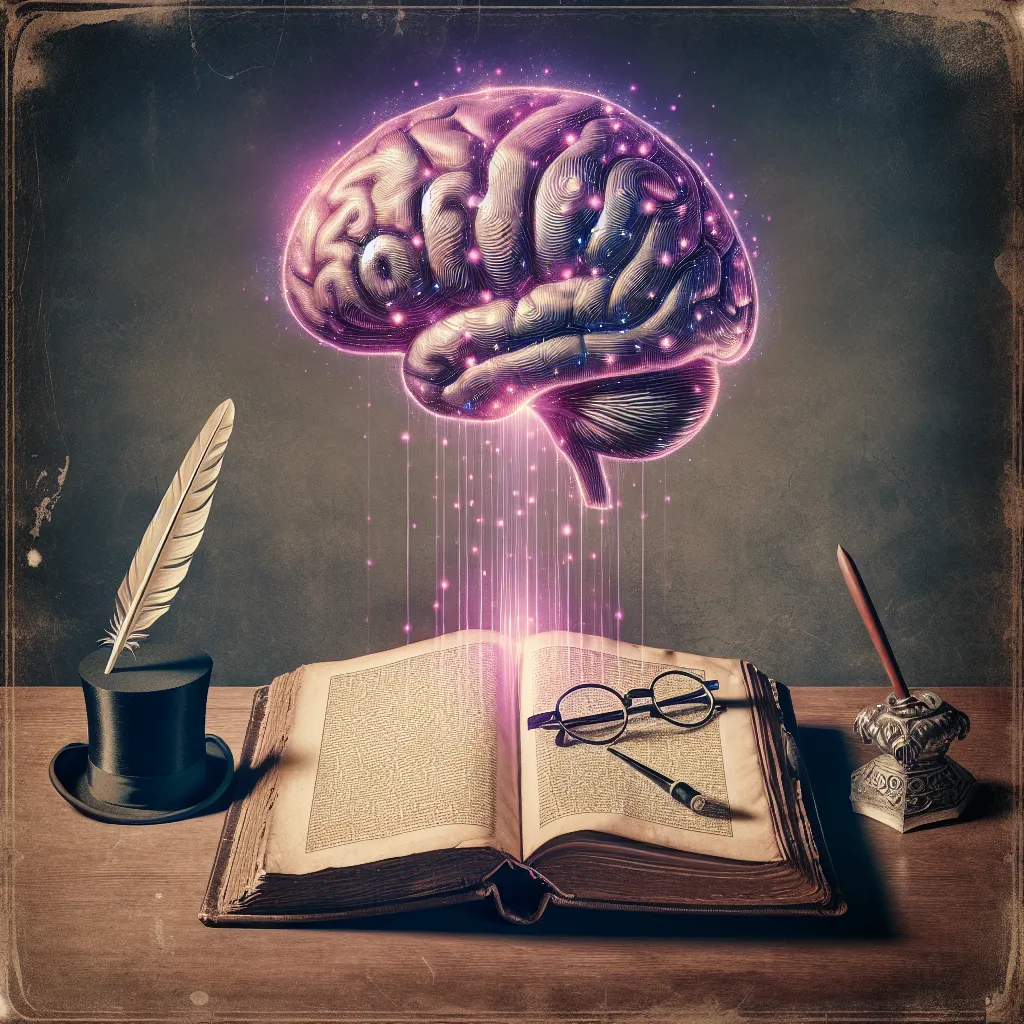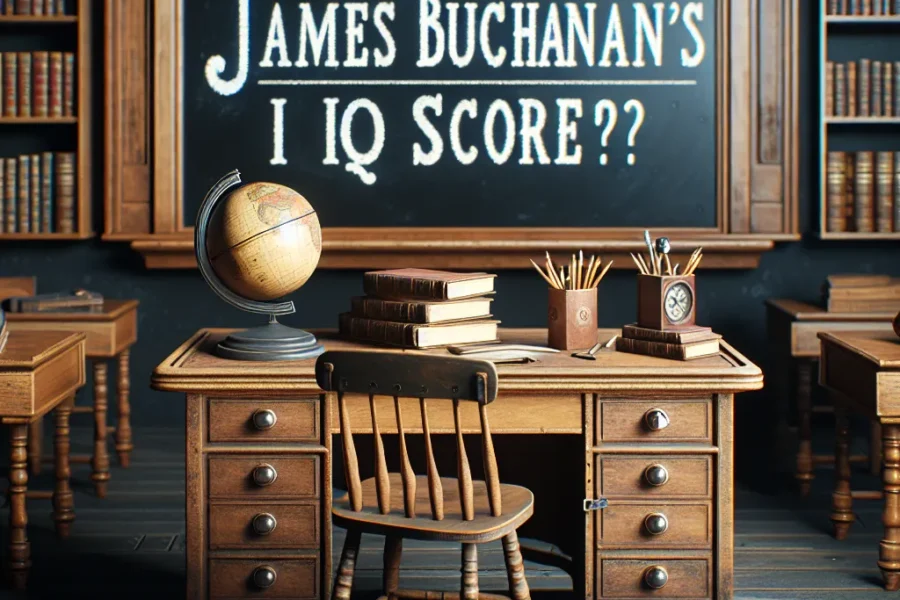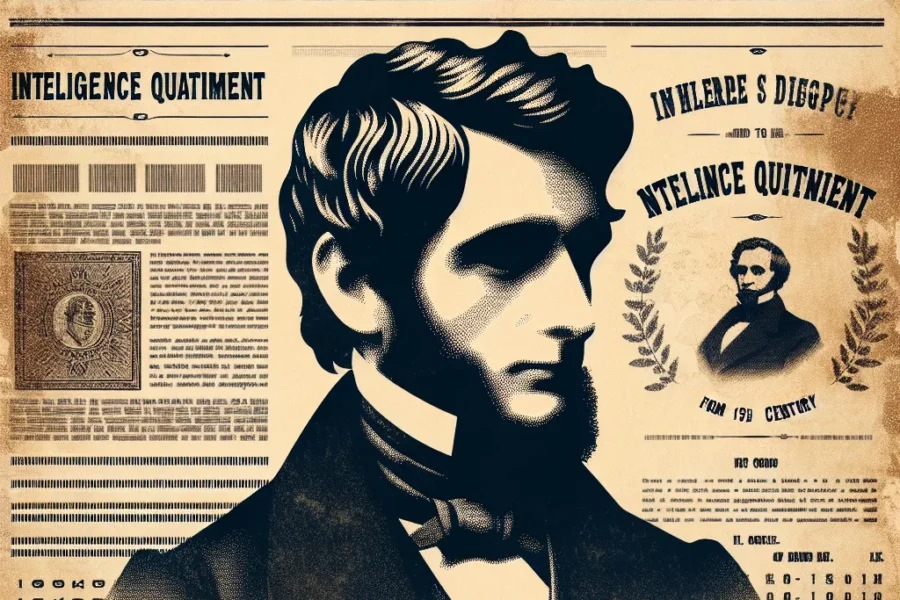Abraham Lincoln, the 16th President of the United States, is a figure whose life and legacy have been examined from numerous angles. He is renowned for his leadership during the Civil War, his role in the abolition of slavery, and his eloquence. An intriguing question that occasionally enters discussions about Lincoln is: What was Abraham Lincoln’s IQ score? While it is impossible to give a definitive answer since standardized IQ tests were not available during Lincoln’s lifetime, an exploration of his cognitive abilities, intellectual achievements, and the historical context of his era can provide some interesting insights.
If you are looking for legitimate IQ Tests which pass the entry bar for Mensa, see our IQ Tests.
First and foremost, it’s important to recognize that IQ testing, as it is known today, didn’t exist in the 19th century. The concept of measuring intelligence through standardized tests wasn’t developed until the early 20th century, long after Lincoln’s death. The IQ score, short for “Intelligence Quotient,” was devised to quantify human intelligence and has evolved significantly over time. The earliest attempts to measure intelligence, such as the Binet-Simon Scale created by Alfred Binet and Théodore Simon in 1905, were rudimentary compared to modern IQ tests. Hence, any attempt to assign an IQ score to historical figures like Lincoln is purely speculative.
Despite this, numerous historians, psychologists, and enthusiasts of Lincoln’s life have tried to estimate his IQ based on his documented achievements, speeches, writings, and anecdotes about his childhood and education. These estimates often hinge on a combination of historical interpretation and a bit of educated guesswork.
Abraham Lincoln was born on February 12, 1809, in a log cabin in Hardin County, Kentucky, and grew up in a very humble setting. He had limited formal education, totaling approximately one year, as he had to work to support his family. Nevertheless, Lincoln had an insatiable thirst for knowledge. He was an avid reader, often borrowing books from neighbors, and had a prodigious memory for what he read. Some of his favorite books included the Bible, Shakespeare’s works, and Aesop’s Fables. Lincoln’s self-education laid the foundation for his intellectual development and ability to articulate complex ideas.
One of the most compelling pieces of evidence of Lincoln’s intellectual prowess is his ability to teach himself law. After working as a store clerk, rail splitter, and surveyor, Lincoln decided to pursue a career in law. He borrowed law books and, through self-study, passed the Illinois bar examination in 1836. This achievement is remarkable given his lack of formal education, demonstrating not only his cognitive abilities but also his determination and discipline.
Lincoln’s speeches and writings further showcase his intellectual capabilities. His “Gettysburg Address,” delivered on November 19, 1863, during the American Civil War, is often hailed as one of the greatest speeches in American history. In just 272 words, Lincoln eloquently encapsulated the principles of human equality, the purpose of the war, and the need for national unity. The speech’s enduring significance and clarity exemplify Lincoln’s mastery of language and his ability to convey profound ideas succinctly.
Another illustration of Lincoln’s intelligence can be seen in his debates with Stephen A. Douglas during the Illinois Senate race in 1858. The Lincoln-Douglas debates are renowned for their depth and complexity, covering issues such as slavery, states’ rights, and the future of the United States. Lincoln’s performance in these debates showcased not only his legal acumen but also his logical reasoning and rhetorical skills. Despite losing the Senate race, the debates elevated Lincoln’s national profile and set the stage for his successful presidential run in 1860.
Lincoln’s presidency further underscores his intellectual acumen. Navigating the nation through its most challenging period, the Civil War, required adept leadership, strategic thinking, and emotional intelligence. Lincoln’s ability to manage conflicting personalities within his cabinet, maintain public support, and make crucial decisions, such as issuing the Emancipation Proclamation, exemplifies his capacity for critical thinking and problem-solving.
While it is tempting to speculate about Lincoln’s IQ, it’s essential to consider the limitations and potential biases inherent in such estimates. Various sources cite differing figures, often ranging from 130 to 150, placing him in the “gifted” or “highly gifted” categories. These estimates are typically derived from analyzing his accomplishments, self-taught education, and written works. However, these numbers remain speculative and should be taken with a grain of caution.
Moreover, modern intelligence tests measure a variety of cognitive abilities, including logical reasoning, quantitative skills, verbal proficiency, and spatial awareness. Lincoln’s talents, especially in verbal and logical reasoning, suggest he would likely score well in these areas. Nonetheless, the multifaceted nature of intelligence implies that any single number, such as an IQ score, cannot fully capture an individual’s intellectual abilities and creativity.
It’s also worth considering the broader definition of intelligence. Howard Gardner’s theory of multiple intelligences, for example, posits that intelligence is not a single, unitary attribute but a combination of various cognitive abilities, such as linguistic, logical-mathematical, spatial, musical, bodily-kinesthetic, interpersonal, intrapersonal, and naturalistic intelligences. Lincoln’s interpersonal intelligence, or his ability to understand and interact effectively with others, was evident in his leadership, empathy, and ability to communicate ideas persuasively. Similarly, his intrapersonal intelligence, or self-awareness, was demonstrated in his self-reflection and principled decision-making.
In conclusion, while it is impossible to ascertain Abraham Lincoln’s IQ score with certainty, his life and legacy provide ample evidence of his remarkable intellectual abilities. From his self-taught education and legal career to his eloquent speeches and effective leadership during the Civil War, Lincoln’s achievements attest to his cognitive prowess and versatility. Regardless of the specific number, it is clear that Lincoln’s intelligence, combined with his character, determination, and vision, played a crucial role in shaping the course of American history.



Leave a Comment